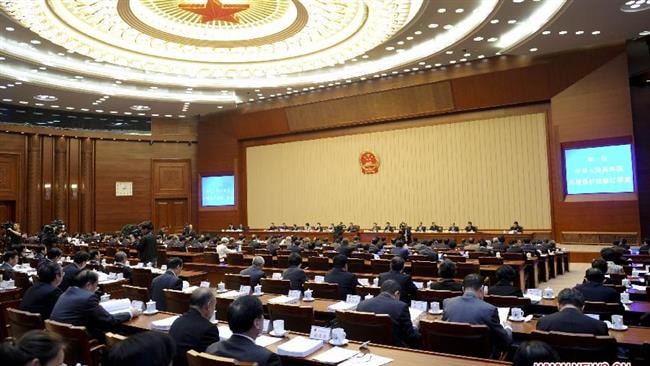Why is China's anti-terrorism bill controversial?
(Baonghean) - On December 27, the Standing Committee of the National People's Congress of China officially passed the first bill on anti-terrorism.Effective from January 1, 2016, considered an effort to solve the problem of domestic terrorism as well as help maintain world security and agreed by 159 delegates, China's bill is still causing controversy.
China wants to increase its influence
 |
| The Standing Committee of the National People's Congress of China has just passed its first anti-terrorism bill. Photo: digitaltrends. |
China's first anti-terrorism bill was passed at the closing session of the 18th session of the 12th National People's Congress Standing Committee. Accordingly, the People's Liberation Army (PLA) and Chinese armed police forces are allowed to carry out counter-terrorism missions abroad if approved by the Central Military Commission of China.
In addition, China's public security and national security forces can also send people abroad to participate in counter-terrorism missions if approved by the State Council as well as the host countries. The new bill also requires technology companies operating in China to hand over sensitive user information when requested by local authorities.
The bill states that, except for media outlets assigned by anti-terrorism authorities, other media outlets are not allowed to publish personal information of witnesses at the scene, hostages or officials responsible for handling the incident, and requires tightening control over individuals posting information related to terrorism on social networking sites.
It can be said that in the context of the world in general and China in particular facing terrorism, this bill is considered necessary. At the congress, Chinese delegates agreed that terrorism is seriously affecting peace and development in the world and is the common enemy of all mankind.
Furthermore, along with many countries in the world, China is also beginning to deal with the rise of the self-proclaimed Islamic State (IS) extremist organization when it also had a citizen executed by IS. Previously, although the provisions on anti-terrorism were included in the Criminal Law and the Emergency Response Law, the birth of the law will be the legal basis for Beijing's moves in facing the serious threat from Islamic extremists.
The passing of the terrorism bill is also seen as an encouragement to Iran. The secretary of Iran's Coordination Council - an advisory body to Supreme Leader Ali Khamenei, recently affirmed China's role in the fight against IS, saying: "China can help maintain peace and stability in the region by playing a more active role in the fight against IS and if so, Iran can also fight Islamic extremism in Central Asia through cultural exchanges and activities with the Chinese Muslim community."
Public opinion believes that, in addition to solving domestic "challenges", this is also a good opportunity for China to "affirm" its role in the region and increase its influence in the international arena.
Challenges to US-China relations
 |
| Beijing's new bill is controversial. Photo: digitaltrends. |
Although the bill was passed in accordance with current security requirements, China's efforts have not met the wishes of many parties, including human rights organizations, businesses and politicians from many countries around the world.
This is completely understandable. Because of the new anti-terrorism bill, China will have full control over the operations of tech companies or make it easier for the government to circumvent privacy protections in everyday gadgets – something no one wants.
US President Barack Obama had previously expressed concerns about the bill when speaking with Chinese President Xi Jinping. The US State Department said that China’s bill would “do more harm than good”, restricting US trade and investment activities in China. Although there has been no specific reaction, the US leader’s assertion is likely to have a significant impact on the operations of many US technology companies in China.
Thus, it can be seen that once again, the issue of cybersecurity is a barrier in the US-China relationship. Despite the "protective" words that "this law will not affect normal business operations, does not infringe intellectual property rights, does not hinder freedom of speech... "requiring companies to open back doors" will continue to hinder the building of trust in the relationship between the two great powers.
Thanh Hien
| RELATED NEWS |
|---|

